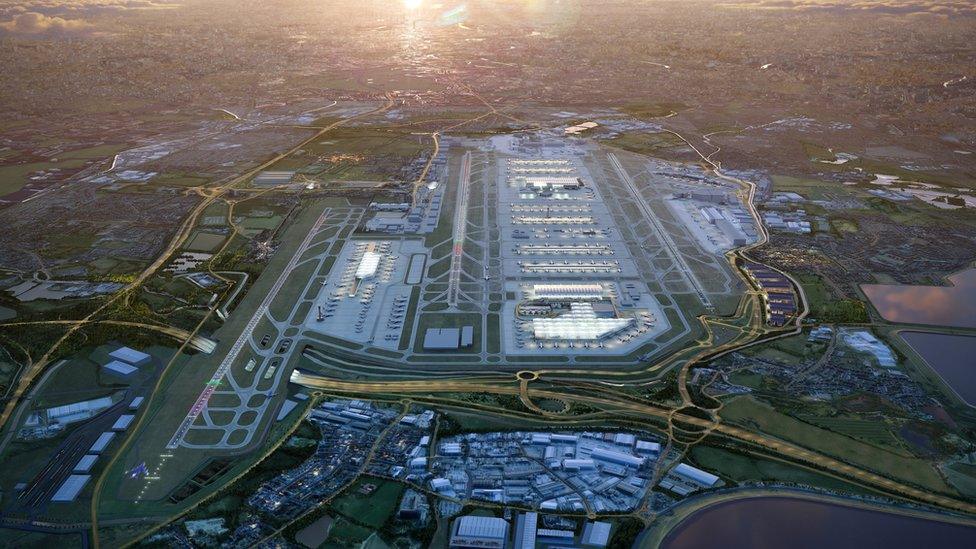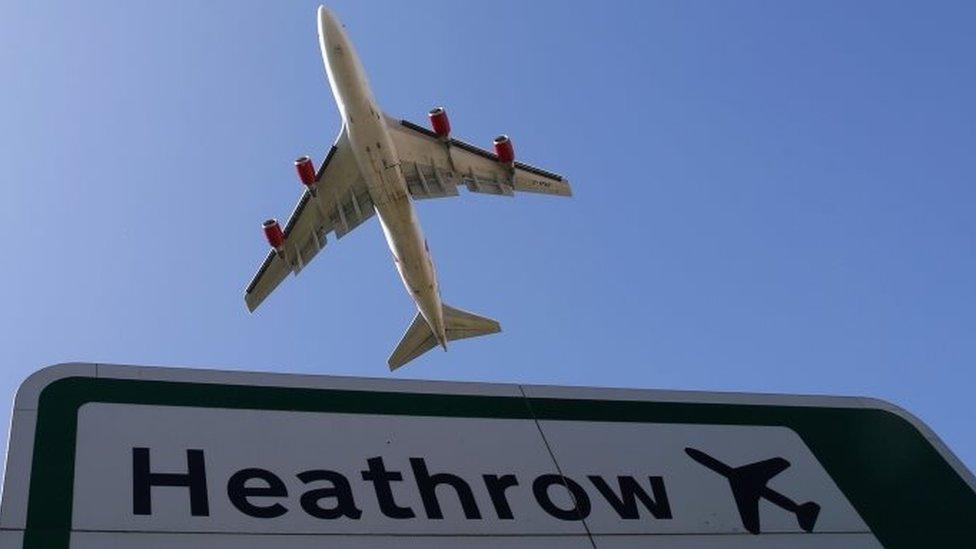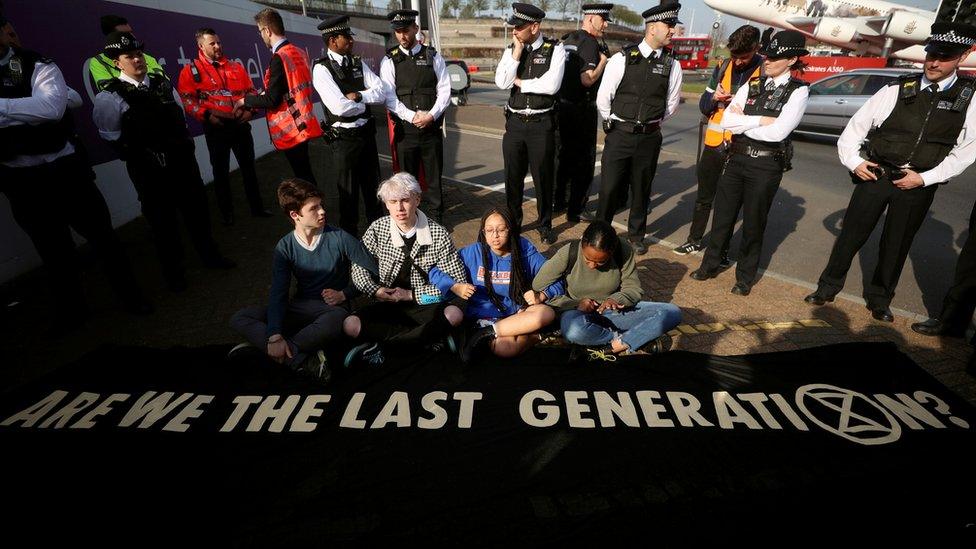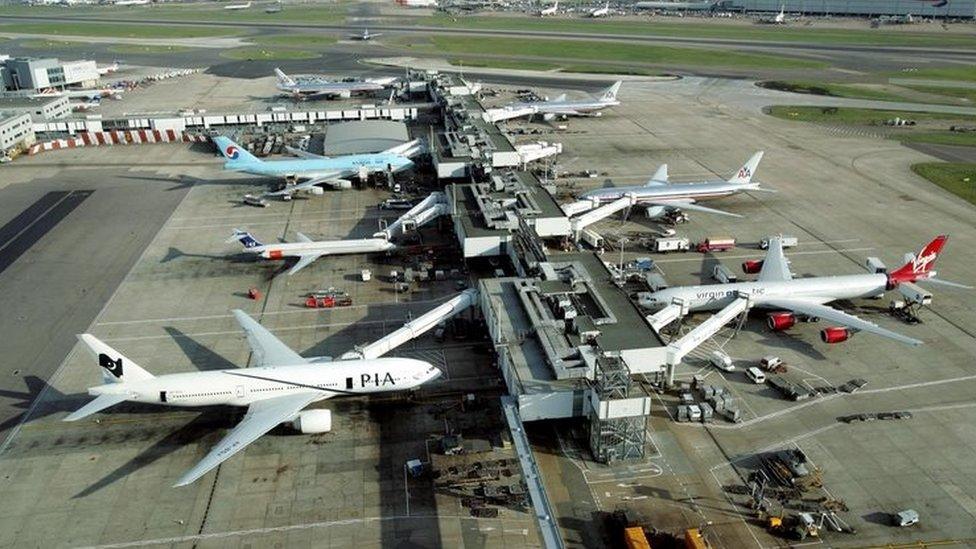Heathrow airport: Third runway plan revealed
- Published
- comments

The architects' visualisation of Heathrow's planned expansion shows the third runway, new terminals and carparks
Heathrow airport has presented a plan for a new runway to make it bigger so more flights could travel to and from the airport.
Heathrow says it wants to construct a third runway by 2026 and have finished its full expansion by 2050, according to its "masterplan" published on Tuesday.
The plan includes diverting rivers, moving roads and railways and even rerouting the M25 motorway through a tunnel under the new runway!
The proposals are open for the public to discuss until 13 September.
However, Heathrow's expansion has been talked about for years and has faced a lot of opposition from environmental campaigners and people who live nearby.
Here are some of the reasons why people are against the new runway and why the airport says the UK needs one.
Argument FOR the third runway

Heathrow wants to open a third runway by the middle of the next decade
Some airports in the UK are the busiest in the world. With more people travelling by plane some people say airports need to be bigger so more passengers can use them.
They say making Heathrow bigger would boost the whole UK economy because businesses would be able to deliver more goods.
Some businesses have said the runway will give them a chance to connect to new countries where they could sell their products.
Supporters also say it would provide more jobs for the area.
The total cost is expected to be about £30 billion and supporters say the new runway would increase the economy by around 37 billion.
Argument AGAINST the third runway

Extinction Rebellion is one of the environmental groups which has been protesting at Heathrow airport
Environmental campaign groups say building a third runway would prevent the UK from reducing greenhouse gases needed to prevent global warming.
An extra 25,000 flights a year could come through Heathrow after the expansion, so a third runway would mean much more planes so more emissions and more pollution.
The government has made a promise to reach net zero carbon emissions by 2050 and many people say we should all be encouraged to fly LESS to reach this target.
The plan does suggests ways to manage the environmental problems, like a low-emissions zone which would mean additional charges for people who drive high-polluting cars, a Heathrow Vehicle Access Charge and a 6.5-hour ban on scheduled night flights.
It's also argued that in the future changes to electric or battery powered planes will cut pollution.
But campaigners say that none of this goes far enough.

Many local residents have protested against the runway, not only because of increased air pollution and congestion but also because of the increased noise pollution.
The airport has suggested a noise insulation policy, noise compensation and a community fund to help nearby residents.
Heathrow has said it would need to purchase 780 homes to build the runway.
Although the airport is offering money, some people don't want to move from their homes
- Published26 October 2016

- Published12 June 2019

